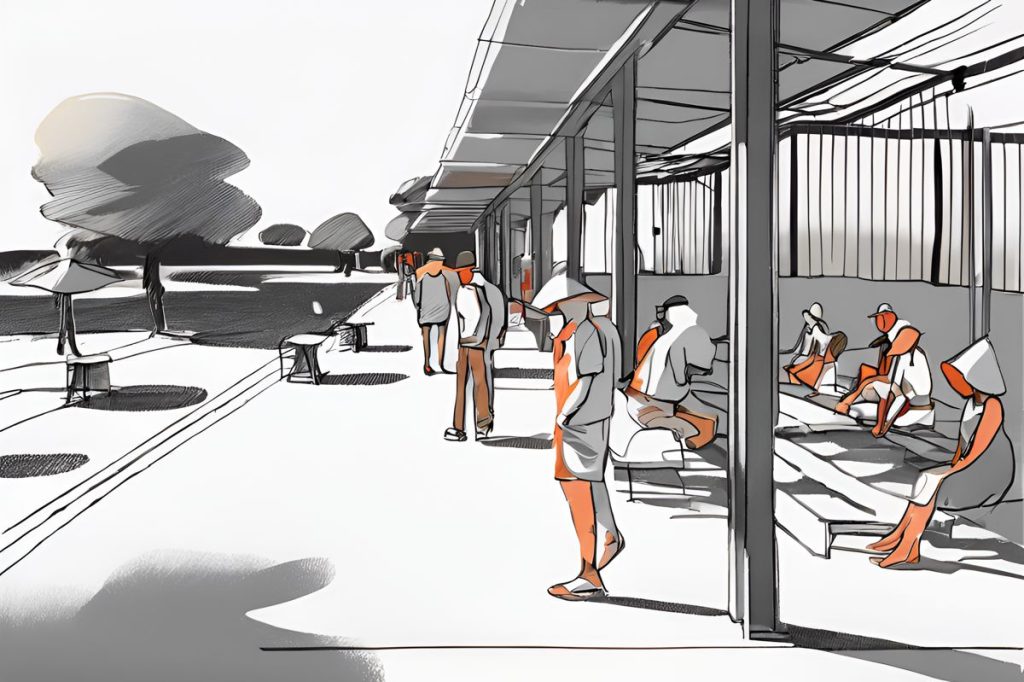As Cyprus braces for a scorching heatwave, the civil defence urges the public to stay cool and hydrated by limiting sun exposure, wearing light clothing, and drinking plenty of water. It’s crucial to check on vulnerable individuals, avoid crowded places, and stay in well-ventilated or air-conditioned spaces to combat the extreme heat and stay safe.
What should you do during a heatwave according to civil defence guidelines?
- Limit sun exposure, avoid strenuous outdoor activities.
- Wear light, breathable clothing, sunglasses, and a hat.
- Drink plenty of water and fruit juices, eat vegetable and fruit-rich meals.
- Check on the elderly and vulnerable, avoid crowded places.
- Stay in ventilated or air-conditioned spaces, use curtains and blinds, open windows at night.
As the mercury rises and Cyprus braces for a scorching heatwave, the civil defence has rolled out a series of vital recommendations for the public’s safety. With the island under a yellow alert, it’s crucial to understand and adhere to these guidelines to ensure your well-being during extreme weather conditions.
Staying Cool and Hydrated
In anticipation of temperatures soaring to 41°C inland and a still sizzling 33°C in the mountainous regions, the first line of defence is to limit exposure to the sun’s intensity. Engaging in heavy labor or vigorous exercise outdoors during this period is not advisable. Likewise, sunbathing, often a popular pastime, should be avoided to prevent the risks of heatstroke.
The civil defence suggests a wardrobe of light, breathable clothing to help keep body temperatures down. Accessorize with high-quality sunglasses to protect your eyes from harmful UV rays, and don’t forget a hat to shield your head and face. Hydration is another critical element in combating the heat. It’s recommended to drink ample amounts of water and fruit juices. Eating meals rich in vegetables and fruits can also help maintain hydration levels and provide necessary nutrients.
Protecting the Vulnerable
In the throes of the heat, our community’s elderly and those requiring care are especially vulnerable. It’s a time to embody the spirit of ‘filotimo,’ a Greek concept referring to a constellation of virtues that includes honor, dignity, and respect for others. Check in on elderly relatives, neighbors, and anyone who may need extra attention to ensure they have everything they need to stay safe and comfortable.
Public health messages stress the importance of avoiding crowded places during heatwaves, as these can exacerbate the effects of heat. Alcohol consumption should be minimized as it can lead to dehydration. Additionally, moving from a cool environment directly into the harsh outdoor heat can be a shock to the system and is best avoided.
Understanding Heat-Related Health Rispects
Knowledge of heat-related illnesses is crucial. Heat exhaustion signs include heavy sweating, weakness, cold, pale, and clammy skin, a fast or weak pulse, nausea or vomiting, and fainting. Immediate steps to cool off and hydrate are necessary if you experience these symptoms.
Preparing Indoor Spaces
For indoor spaces, staying in well-ventilated or air-conditioned areas can be a lifesaver. If you don’t have air conditioning at home, consider spending the hottest part of the day in public spaces such as malls, libraries, or community centers. Remember to draw curtains and blinds to keep the sun out, and if safe, open windows at night to allow cooler air to circulate.
In summary, during this sweltering heatwave, the civil defence’s advice aims to equip the public with the necessary measures to stay cool and healthy. By following these guidelines and looking out for one another, we can all weather this heatwave safely. Remember to stay informed with the latest updates and take proactive steps to protect yourself and your loved ones from the blistering heat.
What should you do during a heatwave according to civil defence guidelines?
- Limit sun exposure, avoid strenuous outdoor activities.
- Wear light, breathable clothing, sunglasses, and a hat.
- Drink plenty of water and fruit juices, eat vegetable and fruit-rich meals.
- Check on the elderly and vulnerable, avoid crowded places.
- Stay in ventilated or air-conditioned spaces, use curtains and blinds, open windows at night.
Why is it important to check on vulnerable individuals during a heatwave?
During a heatwave, vulnerable individuals such as the elderly and those requiring care are at a higher risk of heat-related illnesses. Checking on them ensures they have the necessary support and resources to stay safe and comfortable during extreme weather conditions.
What are the signs of heat exhaustion and what should be done if someone experiences them?
Signs of heat exhaustion include heavy sweating, weakness, cold and clammy skin, fast or weak pulse, nausea, vomiting, and fainting. If someone experiences these symptoms, it is important to immediately cool them off, hydrate them, and seek medical help if necessary.
How can you prepare indoor spaces to combat the extreme heat during a heatwave?
To prepare indoor spaces during a heatwave, it is recommended to stay in well-ventilated or air-conditioned areas. If air conditioning is not available, consider spending time in public spaces with air conditioning. Use curtains and blinds to block out the sun and open windows at night to allow cooler air to circulate.

